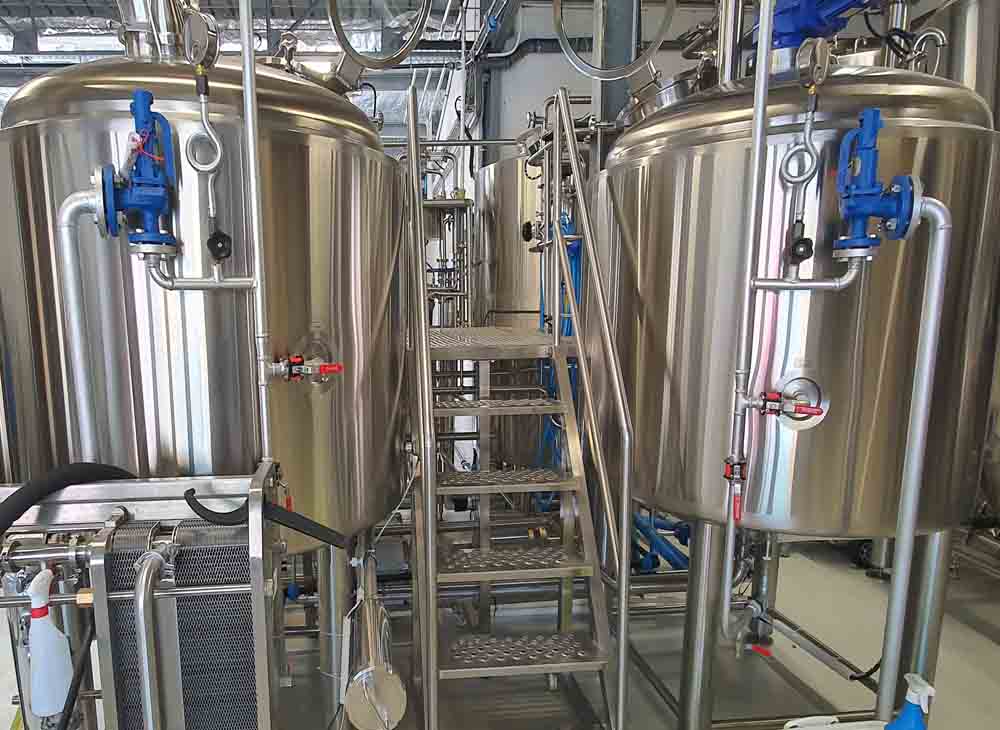Filter beer
- May 30, 2018
- 136
- beer
Filter beer
Beer is mechanically filtered by flowing the beer through layers of filter material; the two main techniques are surface filtration and cake filtration.Filters range from rough filters that remove much of the yeast and any solids (e.g. hops, grain particles) left in the beer, to filters fine enough to strain colour and body from the beer. The normal filtration ratings are defined as rough, fine or sterile. Rough filtration leaves some cloudiness in the beer, but it is noticeably clearer than unfiltered beer. Fine filtration yields a beer which is nearly transparent and not cloudy, although observation of the scattering of light through the beer will reveal the presence of some small particles. Finally, as its name implies, sterile filtration is fine enough that almost all microorganisms in the beer have been removed. Beer which has been filtered is usually held in "bright tanks" at the brewery before bottling or additional treatment.
A beer which is filtered is stable, so all conditioning has stopped - as such it is termed "brewery-conditioned". Beers which are in contact with the yeast are known as bottle-conditioned or cask-conditioned.
Filters that use a powder medium are considerably more complicated to operate, but can filter much more beer before needing to be regenerated. Common media include diatomaceous earth, or kieselguhr, and perlite.
Edited:Alisa
Email:[email protected]

Beer is mechanically filtered by flowing the beer through layers of filter material; the two main techniques are surface filtration and cake filtration.Filters range from rough filters that remove much of the yeast and any solids (e.g. hops, grain particles) left in the beer, to filters fine enough to strain colour and body from the beer. The normal filtration ratings are defined as rough, fine or sterile. Rough filtration leaves some cloudiness in the beer, but it is noticeably clearer than unfiltered beer. Fine filtration yields a beer which is nearly transparent and not cloudy, although observation of the scattering of light through the beer will reveal the presence of some small particles. Finally, as its name implies, sterile filtration is fine enough that almost all microorganisms in the beer have been removed. Beer which has been filtered is usually held in "bright tanks" at the brewery before bottling or additional treatment.
A beer which is filtered is stable, so all conditioning has stopped - as such it is termed "brewery-conditioned". Beers which are in contact with the yeast are known as bottle-conditioned or cask-conditioned.
Filters that use a powder medium are considerably more complicated to operate, but can filter much more beer before needing to be regenerated. Common media include diatomaceous earth, or kieselguhr, and perlite.
Edited:Alisa
Email:[email protected]





